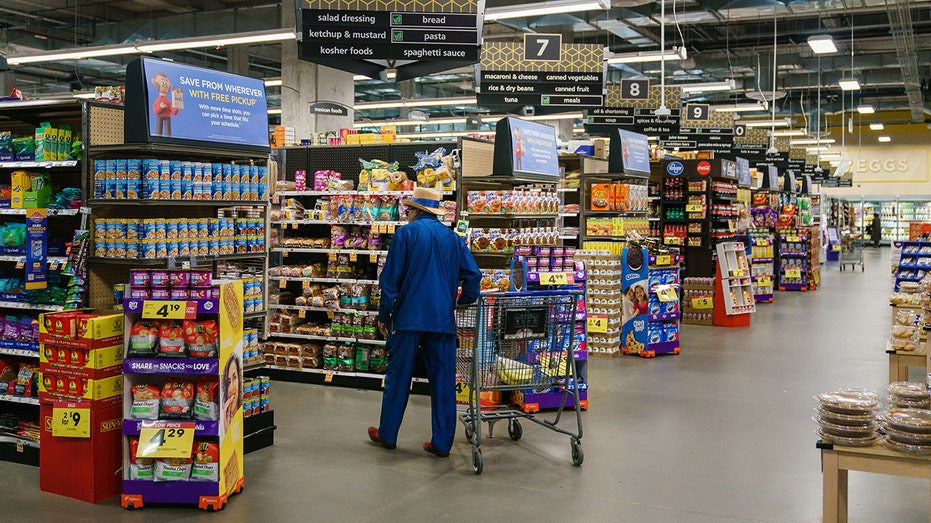Inflation still gave millions of workers a pay cut in October, despite slowdown
US workers worse off today than a year ago as inflation rages
Fed's rate path unlikely to change after CPI shows inflation cooling: Bill Baruch
Blue Line Capital president Bill Baruch reacts to stocks soaring after new CPI data shows inflation edging down, on 'Varney & Co.'
The tightest labor market in decades is fueling rapid wage growth for millions of Americans, but painfully high inflation has quickly eroded those gains.
The U.S. Department of Labor reported on Thursday that average hourly earnings for all employees actually declined by 2.8% in October from the same month a year ago when factoring in the impact of rising consumer prices. On a monthly basis, average hourly earnings dropped by 0.1% last month when accounting for the inflation spike.
By that measure, the typical U.S. worker is actually worse off today than a year ago, even though nominal wages are rising at the fastest pace in years.
That's because consumers are confronting scorching-hot inflation, which has quickly diminished their purchasing power.
INFLATION HOLDS GRIP ON US ECONOMY AS PRICES REMAIN STUBBORNLY HIGH
The government said Thursday that the Consumer Price Index, a broad measure of the prices of everyday goods, including gasoline, groceries and rents, rose by 0.4% in October from the previous month. Prices climbed by 7.7% on an annual basis.
Those figures were both lower than the 8% headline figure and the 0.5% monthly increase forecast by Refinitiv economists, a potentially reassuring sign for the Federal Reserve as it tries to tame runaway inflation with a series of aggressive interest rate hikes. It marked the slowest annual inflation rate since January.
In another sign that suggests underlying inflationary pressures in the economy are starting to slow, core prices — which strip out the more volatile measurements of food and energy — climbed by 0.3% in October from the previous month, down from 0.6% in September. From the same time last year, core prices jumped by 6.3%.
THE FED'S WAR ON INFLATION COULD COST 1M JOBS
But even with the slowdown in inflation, prices remain well above the Fed's 2% target.

Shoppers are seen in a Kroger supermarket on October 14, 2022, in Atlanta, Georgia. ((Photo by Elijah Nouvelage / AFP) (Photo by ELIJAH NOUVELAGE/AFP via Getty Images) / Getty Images)
Scorching-hot inflation has created severe financial pressures for most U.S. households, which are forced to pay more for everyday necessities like food and rent. The burden is disproportionately borne by low-income Americans, whose already-stretched paychecks are heavily impacted by price increases.
Other price gains proved persistent and stubbornly high in October: The cost of groceries climbed by 0.5%, putting the 12-month increase at 12.4%. Consumers paid more for items like cereal, bread, fresh fish and seafood, eggs and fresh vegetables, including tomatoes and lettuce.
THE FED'S WAR ON INFLATION COULD COST 1M JOBS
Shelter costs, which account for about 40% of the core inflation increase, rose by 0.7% for the month and are up by 6.9% over the past year, the fastest annual increase since 1982.

Prices listed at a gas station in Los Angeles, California, on July 19, 2022. (FREDERIC J. BROWN/AFP via Getty Images / Getty Images)
Rent costs jumped by 0.8% over the month and by 7.5% on an annual basis. Rising rents are a concerning development because higher housing costs most directly and acutely affect household budgets. Another data point, which measures how much homeowners would pay in equivalent rent if they had not bought their home, climbed by 0.7% in October from the previous month.
GET FOX BUSINESS ON THE GO BY CLICKING HERE





















